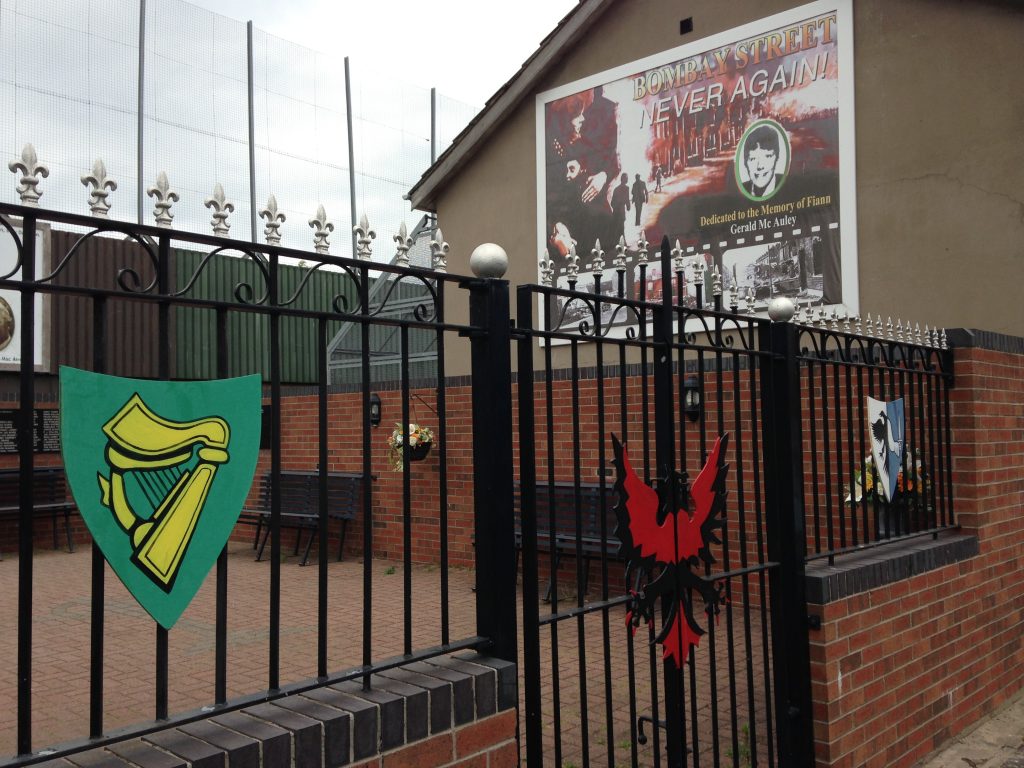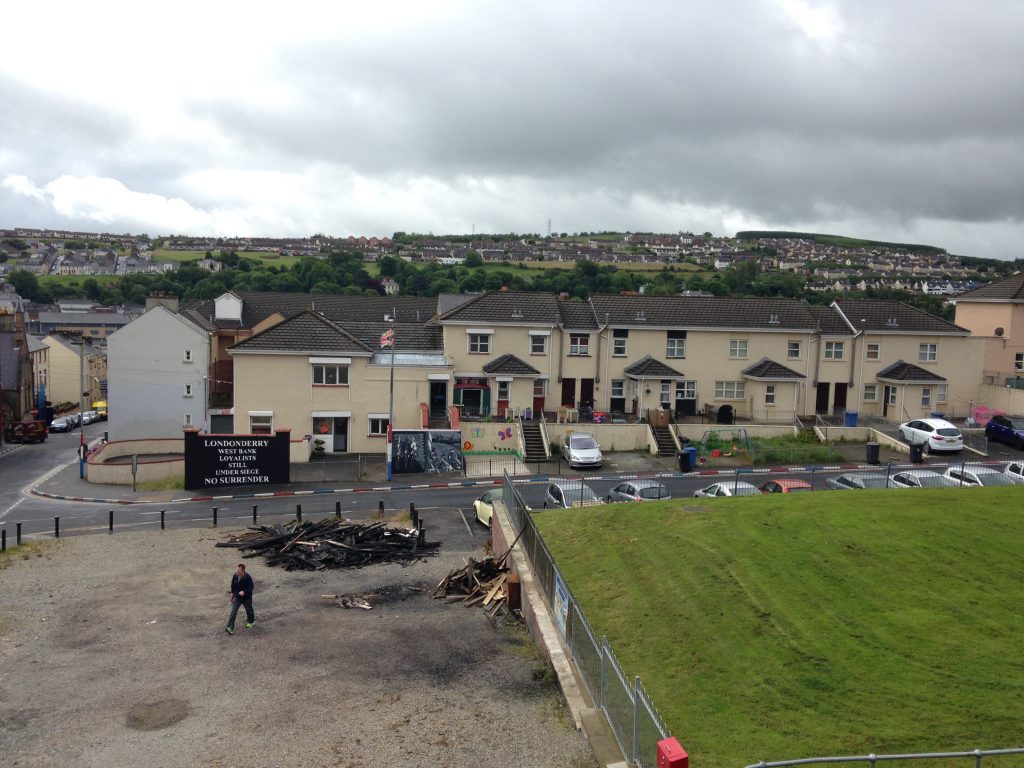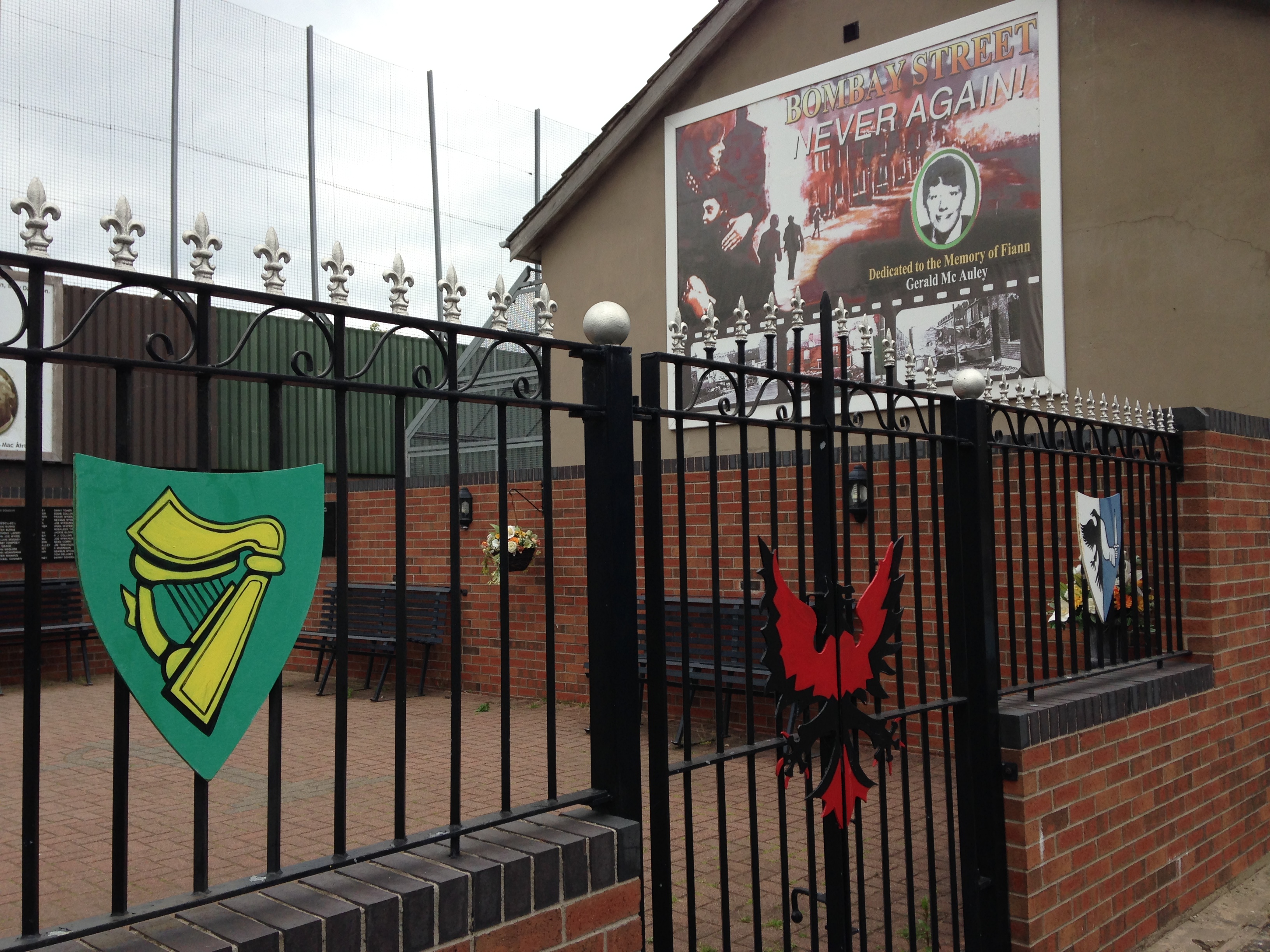When I think of the Troubles, I remember the summer I spent abroad in Ireland. I think about visiting Belfast, where we went forth from the world-class Titanic Museum to explore streets filled with murals, flags, and “peace walls” still dividing Catholics and Protestants. I think of the walking tour we took in Derry, the somber optimism of our guide, and the statue of two figures reached across a chasm. And, of course, I think about Derry Girls, which I absolutely recommend if you haven’t seen it yet.
Until recently, however, I haven’t actually read much about the Troubles. Over the summer, I started addressing that deficit thanks to a new book recommended by my father: Say Nothing: A True Story of Murder and Memory in Northern Ireland by Patrick Radden Keefe.
This is the book on the Troubles that I had been hoping for. Keefe offers a journalistic treatment of the conflict, putting names and faces to atrocities I had long thought of as shrouded in shadow. Keefe’s central narrative is the murder of Jean McConville, a single mother of 10, who was disappeared over allegations that she gave aid to the British. To explain her death and its political context, Keefe interweaves the stories of several prominent figures in the Provisional IRA, including Dolours and Marian Price, Brendan Hughes, and Gerry Adams.
Certain events depict the actors in a humanizing light: the failed civil rights march at Burntollet Bridge, Hughes falling into depression, Dolours starting a family. The next chapter usually reminds the reader of the violence they committed, most strikingly the 1973 London bombing. It can be hard to decide at times whether these figures are victims of history or perpetrators. Perhaps both. No figure comes across as gray as Gerry Adams, who played a crucial role in the shift from Armalite to ballot box while denying his IRA past and rejecting comrades who found it hard to abandon their total commitment to armed struggle.

With its intimate focus on a small cast of primary characters, the book makes the conflict seem small and parochial to a degree that belies the scale of the conflict, especially beyond Belfast. While Keefe does discuss some key figures on the Protestant side and in the British government, his focus on the McConville murder means that the lens remains trained primarily on the IRA.
It may read more like journalism than history, but the author deserves credit for getting into the thorny memory issues at play, especially how a Boston College oral history project went terribly wrong and how the country struggles to talk about the Troubles today. Say Nothing will not be the last influence to shape my understanding of the Troubles, but it’s a worthwhile introduction to political violence in Northern Ireland for anyone interested in the subject.

